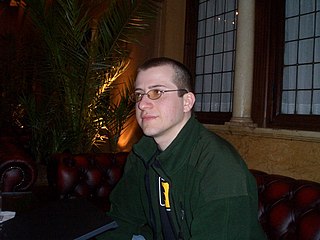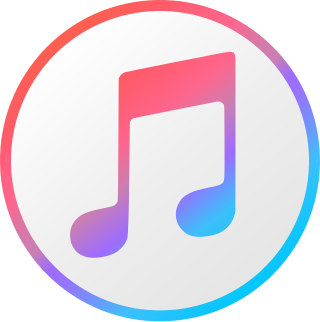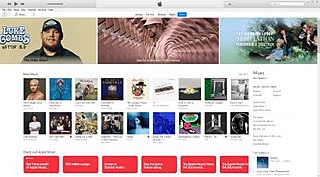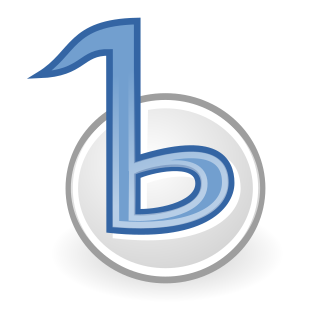Related Research Articles

The iPod is a discontinued series of portable media players and multi-purpose mobile devices that were designed and marketed by Apple Inc. The first version was released on November 10, 2001, about 8+1⁄2 months after the Macintosh version of iTunes was released. Apple sold an estimated 450 million iPod products as of 2022. Apple discontinued the iPod product line on May 10, 2022. At over 20 years, the iPod brand is the longest-running to be discontinued by Apple.

Jon Lech Johansen, also known as DVD Jon, is a Norwegian programmer who has worked on reverse engineering data formats. He wrote the DeCSS software, which decodes the Content Scramble System used for DVD licensing enforcement. Johansen is a self-trained software engineer, who quit high school during his first year to spend more time with the DeCSS case. He moved to the United States and worked as a software engineer from October 2005 until November 2006. He then moved to Norway but moved back to the United States in June 2007.

iTunes is a discontinued media player, media library, and mobile device management utility developed by Apple. It was used to purchase, play, download and organize digital multimedia on personal computers running the macOS and Windows operating systems, and can be used to rip songs from CDs as well as playing content from dynamic, smart playlists. It includes options for sound optimization and wirelessly sharing iTunes libraries.

The iTunes Store is a digital media store operated by Apple Inc. It opened on April 28, 2003, as a result of Steve Jobs' push to open a digital marketplace for music. When it opened, it was the only legal digital catalog of music to offer songs from all five major record labels.

Soulseek is a peer-to-peer (P2P) file-sharing network and application, used mostly to exchange music.
FairPlay is a family of digital rights management (DRM) technologies developed by Apple Inc. for protecting videos, books and apps and historically for music.
The Apple Lossless Audio Codec (ALAC), also known as Apple Lossless, or Apple Lossless Encoder (ALE), is an audio coding format, and its reference audio codec implementation, developed by Apple Inc. for lossless data compression of digital music. After initially keeping it proprietary from its inception in 2004, in late 2011 Apple made the codec available open source and royalty-free. Traditionally, Apple has referred to the codec as Apple Lossless, though more recently it has begun to use the abbreviated term ALAC when referring to the codec.

Pages is a word processor developed by Apple Inc. It is part of the iWork productivity suite and runs on the macOS, iPadOS, and iOS operating systems. It is also available on iCloud on the web. The first version of Pages was released in February 2005. Pages is marketed by Apple as an easy-to-use application that allows users to quickly create documents on their devices. Many Apple-designed templates comprising different themes are included with Pages.
ourTunes is a cross-platform Java-based file sharing client which allows users to connect to iTunes and share MP3 and AAC music files over a local area subnetwork. ourTunes v1.3.3 has been downloaded over 3,000,000 times.

SonicStage is a discontinued software product from Sony that is used for managing portable devices when they are plugged into a computer running Microsoft Windows. It comprises a music player and library manager, similar to iTunes, Windows Media Player and RealPlayer. It is used to manage the library of ATRAC and MP3 recordings on a PC.
Yahoo! Music Jukebox, formerly known as Yahoo! Music Engine, was a freeware music player released by Yahoo! in 2005 to compete with iTunes and Rhapsody in the digital music market. Developed side-by-side with MusicMatch Jukebox, another music player acquired by Yahoo! in 2004, it was designed to be the main client for Yahoo's array of music services, which were centered around Yahoo! Music Unlimited, a paid music streaming service and digital music store; in addition to being a music management software. In early 2008 Yahoo! sold off its music assets, including Yahoo! Music Jukebox to RealNetworks' Rhapsody and replaced it with a web-based music player.
The Motorola ROKR, the first version of which was informally known as the iTunes phone, was a series of mobile phones from Motorola, part of a 4LTR line developed before the spin out of Motorola Mobility. ROKR models were released starting in September 2005 and ending in 2009. They were notable for incorporating support of media player features.
Juice is a podcast aggregator for Windows and OS X used for downloading media files such as ogg and mp3 for playback on the computer or for copying to a digital audio player. Juice lets a user schedule downloading of specific podcasts, and will notify the user when a new show is available. It is free software available under the GNU General Public License. The project is hosted at SourceForge. Formerly known as iPodder and later as iPodder Lemon, the software's name was changed to Juice in November 2005 in the face of legal pressure from Apple, Inc.

Banshee was a cross-platform open-source media player, called Sonance until 2005. Built upon Mono and Gtk#, it used the GStreamer multimedia platform for encoding, and decoding various media formats, including Ogg Vorbis, MP3 and FLAC. Banshee can play and import audio CDs and supports many portable media players, including Apple's iPod, Android devices and Creative's ZEN players. Other features include Last.fm integration, album artwork fetching, smart playlists and podcast support. Banshee is released under the terms of the MIT License. Stable versions are available for many Linux distributions, as well as a beta preview for OS X and an alpha preview for Windows.
Amazon Music is a music streaming platform and digital music store operated by Amazon. As of January 2020, the service had 55 million subscribers.
Serafina Brocious is an American software engineer best known for her work on PyMusique and her demonstration of Onity HT lock system vulnerabilities in 2012.
Digital rights management (DRM) is the management of legal access to digital content. Various tools or technological protection measures (TPM), such as access control technologies, can restrict the use of proprietary hardware and copyrighted works. DRM technologies govern the use, modification and distribution of copyrighted works and of systems that enforce these policies within devices. DRM technologies include licensing agreements and encryption.

AirPlay is a proprietary wireless communication protocol stack/suite developed by Apple Inc. that allows the streaming of multimedia and device screens, together with related metadata, between compatible devices. Originally implemented only in Apple's own software and hardware, the company has since licensed the AirPlay protocol stack to third-party manufacturers and it has been implemented on devices such as television sets and home audio systems. AirPlay works through either a direct peer-to-peer connection between devices or through an infrastructure local network.

iCloud is a cloud service operated by Apple Inc. Launched on October 12, 2011, iCloud enables users to store and sync data across devices, including Apple Mail, Apple Calendar, Apple Photos, Apple Notes, contacts, settings, backups, and files, to collaborate with other users, and track assets through Find My. It is built into iOS, iPadOS, watchOS, tvOS, macOS, and visionOS. iCloud may additionally be accessed through a limited web interface and Windows application.

Music is a media player application developed for the iOS, iPadOS, macOS, watchOS, visionOS, tvOS, Android, and Windows operating systems by Apple Inc. It can play music files stored locally on devices, as well as stream from the iTunes Store and Apple Music.
References
- ↑ "marv on record, archive: PyMusique: iTunes Music Store minus DRM". Marv.kordix.com. 2005-03-22. Retrieved 2009-03-24.
- ↑ "Xinhua - English". News.xinhuanet.com. 2005-03-22. Archived from the original on 2010-10-10. Retrieved 2009-03-24.
- ↑ "nanocr.eu". Nanocrew.net. Retrieved 2009-03-24.[ permanent dead link ]